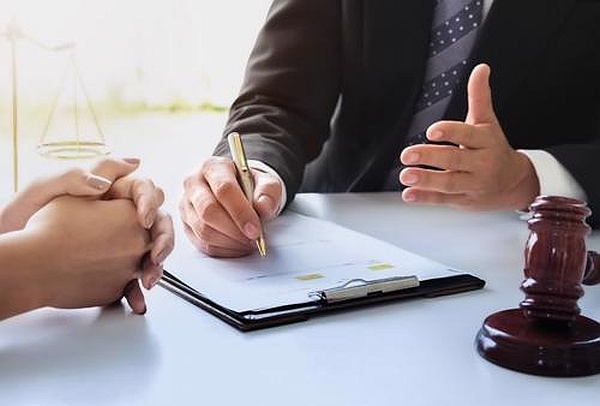Car accidents can lead to a host of challenges for victims, including physical injuries, emotional distress, and financial strain. Amidst these challenges, it’s essential to be aware of the deadline to begin a car accident lawsuit. This timeframe is known as the Statute of Limitations. If you’ve been hurt in a crash in Georgia, don’t wait to contact the Weinstein Firm.
The Statute of Limitations in Georgia for Car Accidents
The Statute of Limitations is a law that sets a deadline to initiate a lawsuit. The deadlines vary based on the type of harm suffered or the nature of the case.
In the state of Georgia, the Statute of Limitations for civil cases such as car accidents, wrongful death, and other personal injury claims is generally two years from the date of the injury or death.
This means that victims must initiate a lawsuit against the party at fault within two years of the accident. Failing to file a claim with the court by the statute of limitations date results in losing your chance to sue.
Exceptions to the Rule
While the typical timeframe for initiating a car accident lawsuit in Georgia is two years, there are certain exceptions that can either extend or shorten this deadline.
Legal Incompetence at the Time of the Accident
If a victim is incapacitated or disabled at the time of the accident, the statute of limitations doesn’t start until they regain legal competence. This is based on the understanding that a person who is legally incompetent cannot be expected to initiate a lawsuit.
The clock starts ticking from the date they are no longer legally incompetent.
Victim Is a Minor
Minors also have an extended deadline to file claims. They usually have two years after their eighteenth birthday to initiate a lawsuit. This is because minors are generally not considered capable of initiating a lawsuit.
Once they reach the age of majority (18 years), they have the standard two-year period to file a lawsuit.
Disability Post-Accident
If the victim becomes disabled due to the accident, this pauses the Georgia car accident statute of limitations until the disability subsides. The disability may, but does not have to, relate to the auto collision.
Fraud
If the defendant committed fraud that prevented the plaintiff from discovering their injury, the statute of limitations may be extended.
Pending, Related Criminal Prosecution
If there is a related criminal prosecution underway, the statute of limitations may be paused until the criminal case is resolved.
Property Damage Actions Involving the State or County
If the car accident claim involves property damage and the state or county is a party, different rules may apply.
Actions Involving a City or Municipality
If the car accident claim involves a city or municipality, different rules may apply.
The Need for Prompt Action
Even though two years might seem like ample time, it’s crucial to act swiftly. The process of gathering evidence and preparing a case can be time-consuming. Furthermore, insurance companies mandate that you make a claim or at least notify the insurer “promptly” or “within a reasonable time” after the accident.
Compensation for Car Accidents in Georgia
Georgia law permits compensation for both economic and non-economic damages in car accident cases. Economic damages encompass medical expenses, lost wages, and property damage. Non-economic damages include pain and suffering, emotional distress, and loss of enjoyment of life.
Insurance Laws for Car Accidents in Georgia
Georgia law mandates drivers to have liability insurance. The minimum limits of liability insurance under Georgia’s insurance laws are as follows:
- Bodily injury liability: $25,000 per person and $50,000 per accident.
- Property damage liability: $25,000 per accident.
The Process of Filing Car Accident Claims in Georgia
Filing a car accident claim in Georgia involves several steps.
- Reporting the Accident: Georgia law requires parties to report an accident immediately to local law enforcement if there is an injury or death, or if there is property damage greater than $500.
- Gathering Evidence: This includes taking photos of the accident scene and obtaining a copy of the Georgia Motor Vehicle Accident Report from the law enforcement agency that investigated the wreck.
- Contacting Your Insurer: You should get in touch with your insurer as soon as possible after the accident.
- Speaking with an Insurance Adjuster: An adjuster will investigate the accident, assess the damage, and determine how much the insurance company should pay.
- Negotiating a Settlement: An Atlanta car accident lawyer can negotiate for the best possible settlement.
- Filing a Lawsuit if Necessary: Most accident cases settle, but your attorney will represent you in court if needed.
Being aware of the Statute of Limitations for car accident claims in Georgia is vital for victims. You should reach out to the Weinstein Firm as soon as possible to ensure you meet the deadlines.
Contact our office at 770-HELP-NOW for a free case review. Remember, the clock starts ticking from the date of the accident, so it’s crucial to act swiftly and safeguard your rights.





